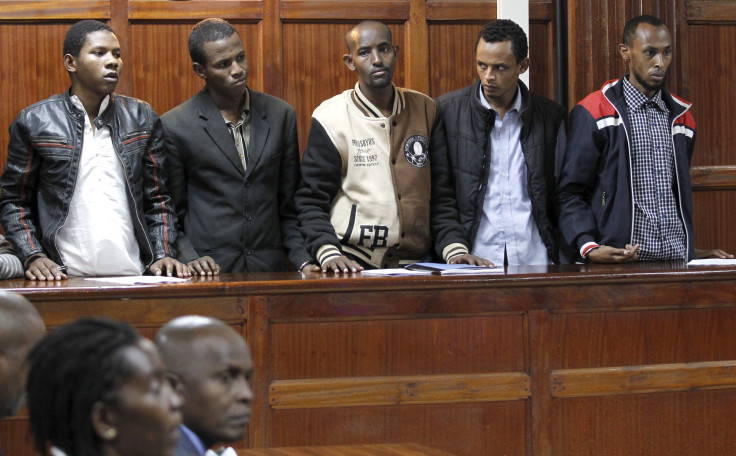Kenya University Attack: 5 Men Charged Over Garissa Massacre That Killed 148 Students

Five suspected militants of al-Shabab group were charged Thursday in connection with Kenya's Garissa University attack. They are reportedly the first people to be charged in the massacre that claimed the lives of 148 students in April.
A magistrate court charged four Kenyans and one Tanzanian with 152 counts of committing acts of terrorism, the Associated Press reported. All of them, arrested in less than 48 hours of the attack, pleaded not guilty. Kenya's Mohamed Ali Abikar, Hassan Edin Hassan, Sahal Diriye Hussein, Osman Abdi Dagane and Tanzania's Rashid Charles Mberesero applied for bail bond claiming to have been tortured in police custody, Capital News, a local news network, reported.
However, state prosecutor Duncan Ondimu reportedly refuted the claims Thursday, saying, “No questions of torture were ever raised. So clearly this is an afterthought after they’ve discovered the seriousness of the charges that they are facing. They’re trying to create a diversion.”
The bail hearing for the accused will be held on July 11, Chief Magistrate Daniel Ogembo told the Nairobi court, Reuters reported.
The assault on the Garissa University is seen as the worst since al Qaeda bombed the U.S. embassy in Nairobi in 1998 that killed at least 200 people. The Somali militant group, linked to al Qaeda, stormed early morning into the university on April 2 and carried out the deadly attack for hours. They reportedly targeted Christian students.
Al-Shabab took responsibility for the killings and warned the Kenyan government that it would carry out more such attacks in the country if the latter does not pull out the African Union peacekeeping forces stationed in Somalia.
Following the attack, Kenyan President Uhuru Kenyatta came under scanner and was pressured to do more to secure the border and other regions.
© Copyright IBTimes 2025. All rights reserved.






















